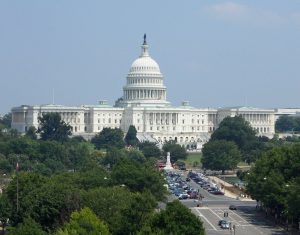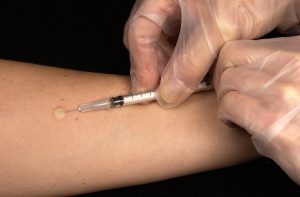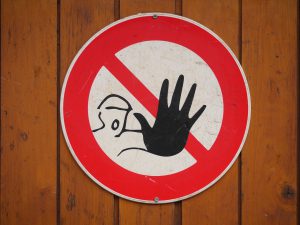With 62,603 deaths in America from the Coronavirus as of April 30th, it doesn’t feel as if the situation in our country is improving. However, the stay-at-home orders and social distancing measures in Hawaii, New Jersey, and New York have helped slow the spread of COVID-19 in these states. There are hopes that the warmer summer months will also help to slow the spread and keep the number of cases down.
On the economic front, more people filed for unemployment last week, bringing the total unemployment number to 26.5 million. Fortunately, the House has approved a new relief package that will hopefully help those who are struggling.

House Passes $484 Billion Coronavirus Relief Bill
The House of Representatives voted on April 23 to approve a $484 billion relief package to aid small businesses and hospitals, and to expand COVID-29 testing. The bill passed in a bipartisan 388-5 vote, with only one Democrat and four Republicans voting against it. $310 billion of the relief package is expected to go towards replenishing the Paycheck Protection Program, which dried up almost as soon as it was created last month.
Nursing Homes Ordered To Disclose COVID-19 Cases & Deaths
On Sunday, April 19, the CMS announced new guidelines for the handling of COVID-19 cases at nursing homes. Because nursing home residents are among the most vulnerable to the virus, facilities will have to notify residents and their families of a confirmed case of COVID-19 within 12 hours of becoming aware of it.
“Nursing homes have been ground zero for COVID-19,” Seema Verma, administrator of CMS, said in announcing the new rules, which she says are designed to provide “transparent and timely information to residents and their families.”
Hopeful Signs in Coronavirus Vaccine Testing

One of the many potential COVID-19 vaccines that is being tested has protected an animal from being infected with the virus. Researchers from Sinvoca Biotech in Beijing gave 2 doses of the vaccine to 8 rhesus macaque monkeys, and 3 weeks later the monkeys were introduced to the virus. None of the monkeys developed a full-blown infection.
Of the 8 monkeys, the ones that were given the highest dose of the vaccine had the best responses. The ones with lowered doses experienced a “viral blip,” but were mostly able to fight off the infection. Researchers, however, are being cautious, and have said that monkeys do not develop symptoms of the virus as severe as those of humans. The Sinovac researchers acknowledge in the paper that, “It’s still too early to define the best animal model for studying SARS-CoV-2,” but noted that unvaccinated rhesus macaques given the virus have symptoms that “mimic COVID-19-like symptoms.”
States Re-Opening
Some states, like Pennsylvania, have set a target date of May 8 for reopening businesses in less impacted areas of the state. Other states, like New York, have decided to wait until May 15, while some states, like Virginia, are continuing their stay-at-home orders until June 10.
On Thursday, April 23, Vice President Mike Pence stated his belief that the coronavirus pandemic could “largely” be “behind us” by Memorial Day Weekend. “If you look at the trends today, I think by Memorial Day Weekend we will largely have this coronavirus epidemic behind us,” said Pence, who is chair of the White House coronavirus task force.
Trump Signs Executive Order Halting Green Cards
President Trump signed an executive order on Wednesday, April 22nd temporarily blocking the issuing of green cards. There are, however, exemptions to the order, including overseas spouses, young children of American citizens, and members of the military and their children.
“It would be wrong and unjust for Americans laid off by the virus to be replaced with new immigrant labor flown in from abroad,” Mr. Trump said on Tuesday. “We must first take care of the American worker.”
The executive order does not affect immigrants who are currently living in the U.S. or those seeking temporary visas for work or education.